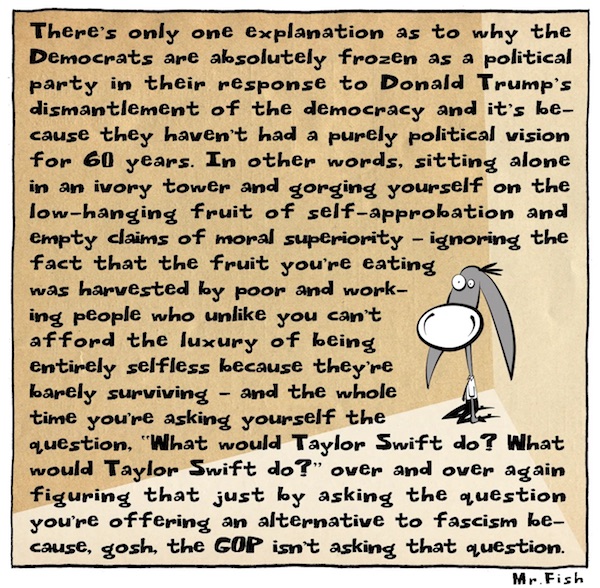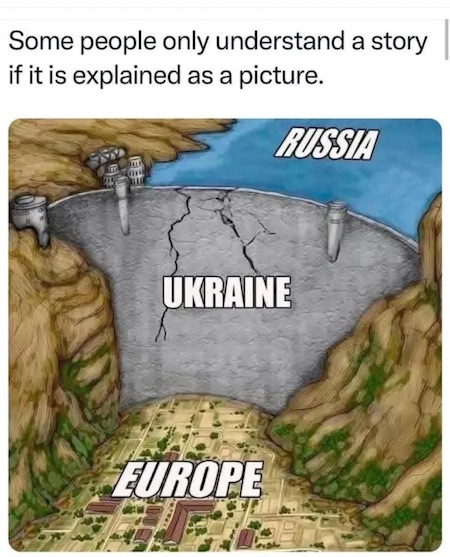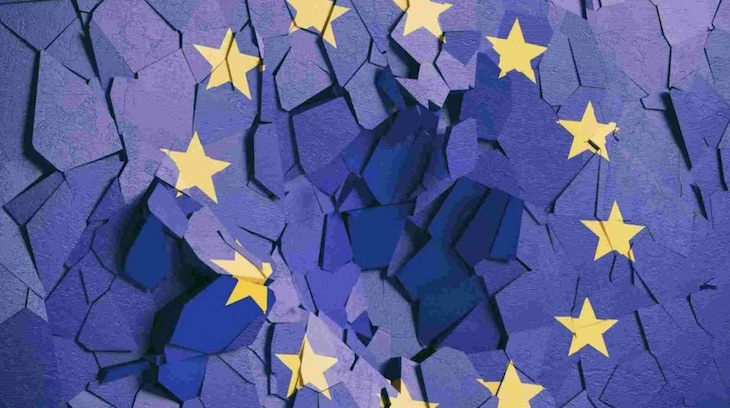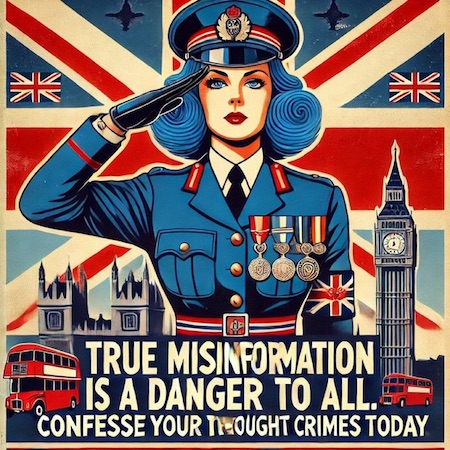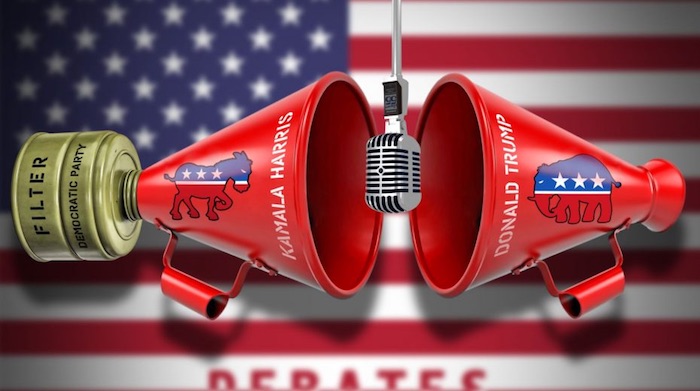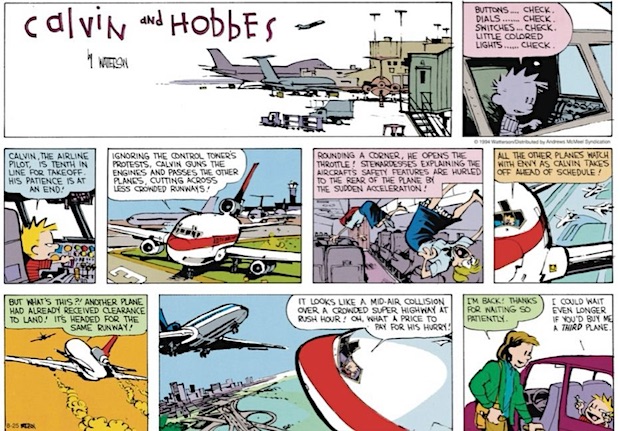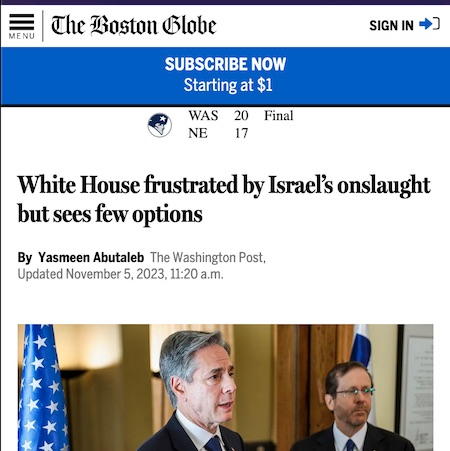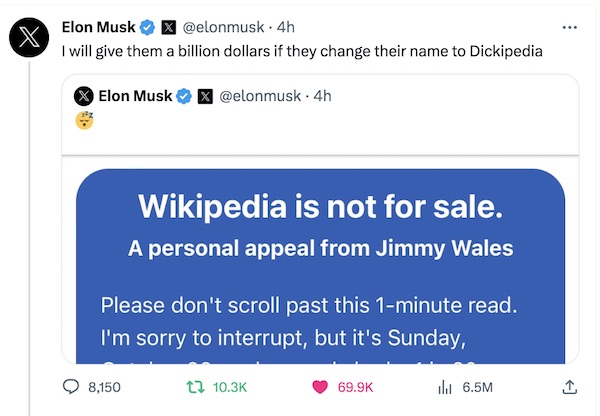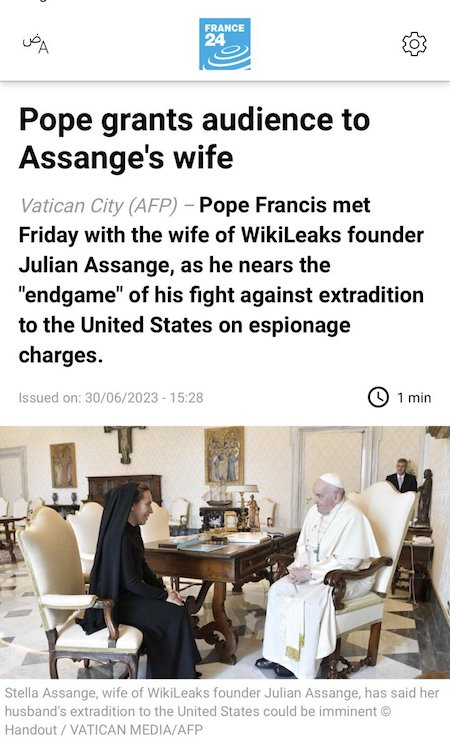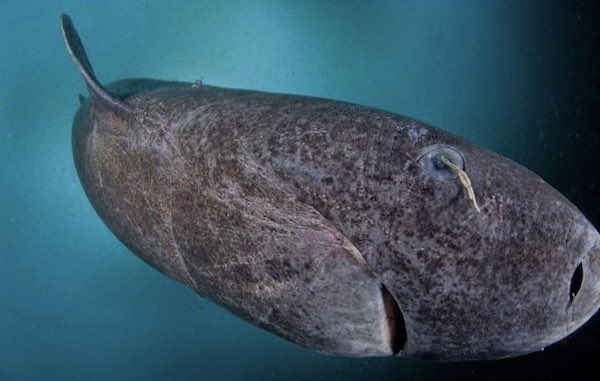
Pablo Picasso Rest 1932



Darien
New border numbers are in!
Darien Gap crossings:
February 2024- 37,166
February 2025- 408ICE arrests in first 50 days: 32,809
Turns out all we needed was a new president! pic.twitter.com/f5nWWhXDax
— Libs of TikTok (@libsoftiktok) March 13, 2025
Jennings
WATCH: Scott Jennings Confronts CNN Panel with Trump’s Economic Wins |
Scott Jennings just dropped a stack of receipts on a pearl-clutching panel fretting over the stock market, proving Trump’s economy is firing on all cylinders despite their doom-and-gloom.@ScottJenningsKY… pic.twitter.com/08MrR2P0DZ
— Overton (@overton_news) March 14, 2025
Homan
https://twitter.com/TulsiGabbardrep/status/1900680065970528502
1850
This is a sickening statistic:
"Immigration accounted for ALL U.S. population growth in 2022-2023, the first time since 1850."
pic.twitter.com/DbNYiSk46K— Benny Johnson (@bennyjohnson) March 13, 2025
Bessent
So much fake gnus
pic.twitter.com/BGZQiMhhX0— Elon Musk (@elonmusk) March 14, 2025
Paper ballots
https://twitter.com/TRUMP_ARMY_/status/1899869063343665284


Not so easy. Kiev would have to order their surrender. Then where does Russia take them, and their weapons? Forget the 30-day truce, not going to work.
Ukraine should surrender. Period. This is step 1.
• Trump Asks Russia To Spare ‘Surrounded’ Ukrainian Troops (RT)
US President Donald Trump has asked his Russian counterpart, Vladimir Putin, to spare the lives of the Ukrainian troops that have been encircled in Kursk Region as part of a ceasefire agreement. Following a meeting in Saudi Arabia earlier this week, Washington and Kiev put forward a 30-day ceasefire proposal, and US special envoy Steve Witkoff delivered the details of the initiative to Putin on Thursday. In a press conference on Thursday, the Russian president stated that he is open to the idea of a truce, but stressed that certain issues have to be addressed beforehand, including the fate of Ukraine’s incursion forces, which are currently surrounded in Russia’s Kursk Region.
“If we stop fighting for 30 days, what does it mean? That everyone who is there will leave without a fight? Should we let them go after they committed mass crimes against civilians?” Putin said. In a post on Truth Social on Friday, Trump acknowledged that “thousands of Ukrainian troops are completely surrounded by the Russian military and in a very bad and vulnerable position.” He went on to say that he “strongly requested to President Putin that their lives be spared. This would be a horrible massacre, one not seen since World War II.” Trump also stated that Washington’s latest discussions with Putin have been “very good and productive,” and suggested that there is now “a very good chance that this horrible, bloody war can finally come to an end.”
Trump’s national security adviser, Mike Waltz, has also recently stated that Washington has “some cautious optimism” that a truce can soon be reached following contacts with Moscow. Kremlin spokesman Dmitry Peskov has confirmed that there are “certainly reasons to be cautiously optimistic,” but reiterated that the issues outlined by Putin still have to be addressed. Apart from the fate of Ukraine’s incursion forces, Putin also raised the question of establishing a monitoring system to oversee a ceasefire along the entire front line, as well as guarantees that Kiev will not use the pause to rearm itself and replenish its ranks.
Wow. Trump is actually preventing WW3.
Putin speaks on “restoring Russian-American relations”, and says that Trump is “doing everything possible” to reverse the damage caused by the Biden administration.
Putin confirms he had a phone call with Trump, and is willing to spare the… pic.twitter.com/icoDdN1diB
— Clandestine (@WarClandestine) March 14, 2025

“..a first top-level US acknowledgement that Ukraine is rapidly losing in its cross-border Kursk operation..”
• Putin Calls For All Ukrainians In Kursk To Surrender (ZH)
Update(1358ET): The Kremlin has responded to President Donald Trump’s request that the lives of the Ukrainian troops encircled in Russia’s Kursk Region be spared, which was conveyed in a Friday Truth Social post by the president. Moscow says it is “sympathetic” to this request, and the pattern in the battle to retake Kursk has been to take POWs if weapons are laid down. At the same time President Putin has called immediate surrender of all Ukrainian troops remaining on Russian soil. Trump had acknowledged that “thousands of Ukrainian troops” are “completely surrounded by the Russian military” in the southwest Kursk region. Putin said during a National Security Council meeting on Friday that Russian forces guarantee their lives if they lay down their arms, according to state media translation:
Putin responded that he was aware of Trump’s request, adding that Russia was willing to consider it. “If they lay down their arms and surrender, [we] will guarantee them their lives and dignified treatment in accordance with international law and Russian legal norms,” the president said. But Putin also emphasized the “numerous crimes against civilians” in the region, also has hundreds of thousands of citizens have fled over the last six months of the Kursk occupation on risky operation ordered by Zelensky. The Ukrainian leader has meanwhile rejected that he will cede territory in Ukraine for the sake of peace, and is demanding a ‘strong response’ from the US. But clearly Trump’s own words suggest he’s not ready to order some kind of greater intervention on Kiev’s behalf.
* * *
President Trump has revealed Friday that he has held the second phone call of his current administration with Russian President Vladimir Putin on the prospect of ending the Ukraine war. The call, held Thursday, included a plea by Trump for Russia to spare the lives of Ukrainian soldiers currently surrounded in the Kursk region. Such a direct appeal like this by Trump is unprecedented. “We had very good and productive discussions with President Vladimir Putin of Russia yesterday” – Trump began a statement on Truth Social, before continuing, “and there is a very good chance that this horrible, bloody war can finally come to an end…” That’s when he stated in all caps, “But, at this very moment, thousands of Ukrainian troops are completely surrounded by the Russian military, and in a very bad and vulnerable position.”“I have strongly requested to President Putin that their lives be spared. This would be a horrible massacre, one not seen since World War II. God bless them all!!!” – Trump ended with. Aside from the rare or even unprecedented nature of such a direct appeal from a sitting US President for Putin to spare the lives of Ukrainian soldiers, this is a first top-level US acknowledgement that Ukraine is rapidly losing in its cross-border Kursk operation. Already as of Wednesday there were widespread reports that a Ukrainian withdrawal from Kursk is underway, and it’s been confirmed that the key town of Sudzha has been taken back by Russian forces, along with well over a dozen towns and settlements in rapid fashion. The amount of Russian territory the Ukrainians still hold there has suddenly shrunk at least four-fold, and by many accounts Russian operatives continue closing in. Even the Financial Times has admitted that the writing is on the wall:
Kyiv’s forces managed at one point to seize some 1,300 sq km of Russian territory. But over the first few weeks the area they were able to hold became a narrow wedge. “It is no secret that the zone of our incursion, it should have been wider,” Kariakin said. “A wide area along the border would have been much more comfortable.” Instead, Russian troops surrounded Ukraine’s occupying forces on three sides. It was a precarious position and became increasingly difficult to hold. War analysts consider it highly debatable and uncertain whether the risky cross-border gambit which started in August actually translated to any strategic advantage across the broader war theater:
For Andriy Zagorodnyuk, a former defense minister of Ukraine, the Kursk operation “served its purpose”: it diverted elite Russian forces and prevented them from opening up another front, he said. Others question whether the benefits outweighed costs to Ukraine’s defense effort on the eastern front. The tragic ‘cost’ has been tens of thousands of Ukrainian troops lost to an operation which had little to no chance of success in the first place.
“High chance” of peace, Trump said…

“After all, it’s Russia that’s winning the war in the battlefield, not the U.S., the – already fragmented – NATO, and much less Ukraine.”
“Zelensky already gave away to the Brits all sorts of control over minerals, nuclear power plants, underground gas storage facilities, key ports (including Odessa), and hydroelectric power plants.”
• Putin Peels Off The Masks Of The Ceasefire Kabuki (Pepe Escobar)
The “ceasefire” announced with trademark bombast by Team Trump 2.0 should be seen as a tawdry kabuki inside a cheap matryoshka. As we peel off the successive masks, the last one standing inside the matryoshka is a woke transvestite tiny dancer: a Minsk 3 in drag. Now cue to a “ceasefire” redux: President Putin in uniform only for the second time since the start of the SMO, dead serious, visiting the frontline in Kursk. Finally, cue to the actual peel off operation: Putin’s press conference after his meeting with Lukashenko in Moscow. Ceasefire? Of course. We support it. And then, methodically, diplomatically, the Russian President pulled a Caravaggio, and went all-out chiaroscuro on every geopolitical and military detail of the American gambit. A consumate artful deconstruction.
End result: the ball is now back in Donald Trump’s court. Incidentally the leader of the revamping-in-progress Empire of Chaos who does not (italics mine) have the cards. That’s how diplomacy at the highest level works – something out of reach of American bumpkins of the Rubio variety. Putin was gracious enough to thank “the President of the United States, Mr. Trump, for paying so much attention to resolving the conflict.” After all the Americans also seem to be involved in “achieving a noble mission, a mission to stop hostilities and the loss of human lives.” Then he went for the kill: “This ceasefire should lead to a long-term peace and eliminate the initial causes of this crisis.” As in all Russian key imperatives – widely known since at least June 2024 – will have to be satisfied. After all, it’s Russia that’s winning the war in the battlefield, not the U.S., the – already fragmented – NATO, and much less Ukraine.
Putin was adamant on the ceasefire: “We are for it.” But there are nuances; once again, it’s called diplomacy. Starting with verification – arguably the crux of Putin’s reasoning: “These 30 days — how will they be used? To continue forced mobilization in Ukraine? To receive more arms supplies? To train newly mobilized units? Or will none of this happen? How will the issues of control and verification be resolved? How can we be guaranteed that nothing like this will happen? How will the control be organized? I hope that everyone understands this at the level of common sense. These are all serious issues.” No: the collective EUrocracy, mired in demented Russophobia, does not understand “common sense”.
Once again Putin deferred, diplomatically, to the “need to work with our American partners. Maybe I will speak to President Trump.” So there will be another phone call soon. Trump, for his part, perennially floating on the clouds of bombast, already applied “leverage” on the negotiations – even before Putin’s detailed answer to the ceasefire kabuki. He ramped up sanctions on Russia’s oil, gas and banking, allowing the waiver on Russian oil sales to expire this week. That means in practice that the EUro-vassals and other assorted “allies” cannot buy Russian oil anymore without evading U.S. sanctions. Even before that elements from Kiev criminal gang were begging for more sanctions on Russia as part of a “peace” plan. Trump obviously agreed by bypassing basic diplomacy once again. Only those with an IQ of less than zero can possibly believe that Moscow will support a ceasefire/’peace process” where it is sanctioned for attempting to end a war that it is actually winning in the battlefield – from Donbass to Kursk.
Sanctions will have to be at the heart of the possible U.S.-Russia negotiations. At least some of those thousands will have to go right from the start. Same for the $300 billion or so in Russian assets “seized” – as in stolen –, most of it parked in Brussels. Putin’s Caravaggio ceasefire painting reveals that he has absolutely no interest in antagonizing the notoriously volcanic Trump, or to put in peril the possibility of a U.S.-Russia détente in the making. As for Kiev and the EUro-chihuahuas, they remain on the menu, and not on the table. Predictably, Western MSM, as a wave of toxic detritus hitting a pristine shore, is spinning that Putin said “Nyet” to the ceasefire gambit as a prelude to scotching any negotiations about it. These specimens would not understand the meaning of “diplomacy” even if it was a comet piercing the skies.
As for the spin on the Brits “helping” the Americans and the Ukrainians to concoct the ceasefire gambit, that does not even qualify as a crappy Monty Python sketch. The Brit ruling classes, MI6, their media and think tanks, simply abhor any negotiations. They are at direct, frontal war with Russia, and their plan A – no plan B – remains the same: inflict a “strategic defeat” on Moscow, as the SVR knows inside out. The heart of the matter is the Black Sea. Vladimir Karasev’s analysis, as explained to TASS, is spot on: “The British have already entered the city of Odessa, which they view as a key location. Their special services are heavily involved there. The British do not conceal their desire to establish a naval base in Odessa.”
Odessa is part of the extensive menu of Ukraine’s resources already, in thesis, handed over to the Brits under the shady – and completely illegal – 100-year agreement signed between Starmer and the sweaty sweatshirt in Kiev. According to the dodgy deal and its made in the shade footnotes, Zelensky already gave away to the Brits all sorts of control over minerals, nuclear power plants, underground gas storage facilities, key ports (including Odessa), and hydroelectric power plants. On the ongoing minerals/rare earth saga in 404 – or what will be left of it – the Brits are in vicious, direct competition with the Americans. The CIA is obviously in the know. This whole thing will turn very ugly in no time.

Too much to do first.
• Monday A Big Day For Ukraine Conflict – Trump (RT)
US President Donald Trump has said that Washington’s negotiations with Moscow over a US-proposed temporary ceasefire in the Ukraine conflict have been going “okay” so far, and that he expects good news soon. Earlier this week, Washington and Kiev put forward a 30-day truce proposal, with US special envoy Steve Witkoff delivering the details of the initiative to Russian President Vladimir Putin on Thursday. Putin said Moscow is open to the idea but stressed that many issues need to be addressed beforehand, including the fate of the Ukrainian incursion forces currently surrounded in Russia’s Kursk Region. In a sit-down interview with Sharyl Attkisson for Full Measure published on Friday, Trump neither confirmed nor denied having direct communication with Putin regarding the initiative, calling it a “very complex situation.”
“Well, I don’t want to say it, but we are dealing with him, and I think it’s going reasonably well,” Trump said. “As you know, we have a ceasefire agreement with the Ukrainians. And we are trying to get that with Russia, too.” And I think thus far, it’s gone okay. We’ll know a little bit more on Monday, and that’ll be, hopefully, good. Trump admitted that he was being “a little bit sarcastic” when he previously claimed he could resolve the Ukraine conflict within 24 hours. He clarified that he meant he wanted to “get it settled” and expected Putin to support his initiative. “I think I know him pretty well, and I think he’s going to agree,” the US president said.
Earlier in the day, Trump asked Putin to spare the lives of the “thousands of Ukrainian troops” who are “completely surrounded” in Kursk Region. Putin said he is “sympathetic” to Trump’s plea but argued that it is up to Kiev to order its troops to surrender. “If they lay down their arms and surrender, [we] will guarantee them their lives and dignified treatment in accordance with international law and Russian legal norms,” Putin said. He stressed, however, that the Ukrainian forces committed “numerous crimes against civilians” during their incursion and that Russian law enforcement is treating their actions as “terrorism.”

“..normal relations with Russia..” What tf is that? They’re all buying armss and building facilities.
• NATO Countries Should Restore Ties With Russia – Rutte (RT)
Europe and the United States should gradually normalize relations with Russia once the Ukraine conflict is over, NATO Secretary General Mark Rutte has said. The statement comes a day after the head of the US-led military bloc met President Donald Trump at the White House and amid ongoing efforts by Washington to establish a ceasefire between Moscow and Kiev. Trump has also expressed interest in restoring economic ties with Russia, an idea that was supported by Russian President Vladimir Putin. Speaking to Bloomberg TV on Friday, Rutte recalled that he had “many dealings” and “many negotiations” with Putin while prime minister of the Netherlands. “Long-term, Russia is there, Russia will not go away,” he said. “It’s normal if the war would have stopped for Europe somehow, step by step, and also for the US, step by step, to restore normal relations with Russia,” he argued.
Ukraine’s possible membership of the bloc is off the table in the current peace process, Rutte confirmed, a point Moscow has insisted upon. Most EU leaders, with the notable exceptions of Hungary’s Viktor Orban and Slovakia’s Robert Fico, have advocated for continued confrontation with Russia, despite the ongoing peace process. European NATO countries have been supplying weapons to Kiev since the escalation of the conflict in 2022. Some bloc members, such as France, have floated the idea of deploying troops in Ukraine to monitor a truce. Russia has denounced the idea and insisted that any NATO contingent in Ukraine deployed without a UN mandate will be considered a legitimate target.
Moscow has accused the EU of militarizing against Russia, after the bloc’s leaders backed €800 billion ($860 bn) in debt and tax-breaks for its military industrial complex. As NATO’s biggest financial contributor, Trump has consistently criticized the bloc’s European members for not meeting the defense expenditure targets. NATO has maintained a hostile position towards Moscow since Crimea joined the Russian Federation in 2014 and the subsequent escalation of the Ukraine conflict in 2022. The developments led to the suspension of practical cooperation and a significant military buildup in NATO countries on Russia’s borders.

“Ukraine will maintain martial law..”
• No Election In Ukraine Even If Truce With Russia Achieved – Podoliak (RT)
Ukraine will maintain martial law and will not hold a presidential election even if a ceasefire with Russia is established, Mikhail Podoliak, adviser to Ukrainian leader Vladimir Zelensky, told the Italian newspaper la Repubblica on Friday. Martial law has been in place in Ukraine since the conflict with Russia escalated in February 2022. Zelensky’s presidential term officially expired in May 2024, and he has refused to hold a new election, leading to debates about the legitimacy of his administration. Since US President Donald Trump assumed office in January, the US has been attempting to mediate peace in the conflict. Earlier this week, it proposed a 30-day ceasefire, which Ukraine claimed it was ready to implement, contingent upon Russia’s agreement.
Russian President Vladimir Putin called the idea of a ceasefire “a good one” but pointed to a number of issues that would have to be addressed beforehand. Presidential spokesman Dmitry Peskov said on Friday that the issues would likely be discussed with Washington during future contacts. According to Podoliak, however, a temporary ceasefire does not equate to the end of the conflict. “We must maintain the ability to fight until the situation is regulated,” Zelensky’s aide said in an interview with la Repubblica. “The 30-day ceasefire will not unblock the elections,” he added.
In January, Putin stated that Zelensky is illegitimate, a circumstance that could invalidate any agreements that are reached with his involvement. Zelensky had previously enacted legislation prohibiting negotiations with Russia’s current leadership. The Trump administration has begun reestablishing contacts with Russia and has attempted to push Kiev toward seeking a resolution to the hostilities. In February, the Kremlin said that Putin was ready to negotiate with Zelensky, but pointed out the need to address the legal aspects related to the latter’s legitimacy as head of state.

“The Ukrainians want peace. We all want peace. And as defense ministers, we have been discussing and we are working to strengthen the push for peace..”
• The EU’s Plan For ‘Peace’ Is To Buy More Weapons With Taxpayer Money (RT)
European defense is basically a teenaged-grade fantasy war gaming league at this point – minus the generous sponsorships. On Wednesday, defense ministers from five European heavyweights – France, Germany, Italy, Poland, and Britain (yes, Britain, because apparently Brexit only applied to sensible EU decisions) – gathered in Paris to figure out how to elbow their way back into the Ukraine game. With US President Donald Trump running the show himself, Europe’s big players are scrambling for relevance. And they’re doing such a stellar job of it that the German defense minister is now relegated to sounding like every annoying dude sitting courtside at a French Open tennis match who thinks he’s offering stellar insight into the state of play.
“We welcome the one-month ceasefire,” Boris Pistorius said, referring to the deal that the Trump administration made with Ukraine. “But now the ball is in Vladimir Putin’s court. It is now Vladimir Putin’s turn to demonstrate his repeated stated readiness for a ceasefire or peace,” he added. Because nothing screams “gimme peace” like the EU meeting about throwing money into the purchase of new weapons. But all this war prepping talk is great for Europe’s latest PR push: convincing taxpayers that draining their wrung-out wallets to the point of even potentially leveraging their private savings for an arms race, as suggested by the French defense mall minister, is actually a genius economic plan. Keynesianism, but with a military vibe.
The British defense secretary claims that the need for a weapons shopping spree actually comes from a place of deep, inner hippie-ness. “The Ukrainians want peace. We all want peace. And as defense ministers, we have been discussing and we are working to strengthen the push for peace,” John Healey said, probably itching to get back home to squeeze into some bell bottoms and smash the bongo drums. Poland’s defense minister also appears to have just stumbled out of a flower-painted VW bus straight from Woodstock. “500 million Europeans deserve a force that will defend peace. 500 million Europeans deserve the opportunity to bring peace,” said Wladyslaw Kosinski-Kamysz in explaining why more weapons spending is needed, and sounding like the type who would also suggest that sobriety comes through an overextended happy hour sip n’ giggle.
Earlier this week, the French and British defense ministers huddled with their army chiefs of staff, still riding high on their leaders’ idea of a “coalition of the willing” for Ukraine. That was British Prime Minister Keir Starmer’s braindropping, repurposed from the Iraq War – perhaps because he couldn’t think of an appropriate catchphrase to reference loss of 60,000 British troops in World War II’s Battle of the Somme. All because Trump had the audacity to suggest a grand bargain with Russia, with the risk of peace breaking out in Ukraine.
None of these European countries actually want any troops on the front line at this point, by the way. Not that they aren’t one screwup away from them ending up there anyway. Maybe the French president and armchair general, Emmanuel Macroleon, can train all these contingents like they did that €900-million Ukrainian ‘Anne of Kyiv’ Brigade, with 1,700 of them going AWOL before the first shot was even fired. Interesting that the Trump administration reportedly just wants private contractors on the ground around the resource exploitation deals that they’ve envisioned in Ukraine and elsewhere, and in which Putin has also expressed interest in partnering. But insiders have told France’s Le Figaro that the Europeans don’t believe that will work, and that NATO troops are needed. Apparently, they believe that Russia would attack its own joint ventures with the Americans in Ukraine.

White Paper.
• EU Aiming To Revive Military Industry – Politico (RT)
The European Union has laid out plans to revitalize its military industry, citing an alleged “existential threat” from Russia and concerns over the future of NATO, according to a White Paper obtained by Politico. Moscow has repeatedly denied having any intention of attacking Western states, dismissing such claims as “nonsense” meant to justify increased military spending. The initiative comes in light of European Commission President Ursula von der Leyen’s proposal to mobilize up to €800 billion for defense. The so-called ReArm Europe plan includes financial incentives for EU member states to expand their military budgets, as well as a proposed €150 billion in loans for joint defense projects.
The White Paper, one of the authors of which is the EU’s top diplomat, Kaja Kallas, outlines measures to “rebuild European defense” by increasing military spending, prioritizing the procurement of defense items within the EU, and streamlining financing for arms production. Kallas, a vocal critic of Moscow, has long advocated for a more aggressive military posture toward Russia. The document justifies its proposals by citing what it describes as the “existential threat” posed by Russia and Moscow’s “expansionist policies.” It states that the EU must prepare for a long-term confrontation and that investing more in defense is necessary to ensure security. The White Paper additionally highlights growing concerns over the US’ role in European security. It warns that Washington’s shifting policies under President Donald Trump could weaken NATO’s capabilities, meaning that the EU would have to take greater responsibility for its own defense.
The document refers to NATO as “the cornerstone of collective security” and argues that Europe must do more to ensure the military bloc remains intact. Another key aspect of the proposal is increasing assistance to Ukraine. The White Paper calls for additional military aid, including the supply of 1.5 million artillery shells, expanded training programs for Ukrainian forces, and continued integration of Ukraine into EU military initiatives. Moscow has repeatedly denied any intention of attacking NATO or EU member states. Russian President Vladimir Putin has dismissed such claims as “nonsense” meant to scare the European population and increase military budgets. Russian officials have also vehemently condemned the EU’s recent militarization efforts and vilification of Moscow, arguing that it is a path that only leads to more confrontation and undermines peace efforts in the Ukraine conflict.

Lutnick is better at short soundbites.
• Secretary Lutnick Outlines Stupidity of Canada and EU (CTH)
Commerce Secretary Howard Lutnick appears on Bloomberg to discuss the tariff approach of President Trump toward national security. Economic security is national security. Lutnick correctly points out the crazy mindset of the Canadians and Europeans not understanding and respecting the big picture objective of President Trump. Ex. President Trump says we need steel and aluminum made in the USA, Canada responds with a tax on soccer balls. As Lutnick says, “really, I mean, REALLY?” This interview is must watch television that cuts directly through the pretending and silliness.
https://twitter.com/MarcNixon24/status/1900226170261774454

Amaryllis Fox Kennedy. Interesting woman.
• AFK: Former CIA Agent Tasked With Reining In Intel’s ‘Black Budgets’ (RCW)
A glamorous woman in an unglamorous job, Amaryllis Fox Kennedy sits in a cavernous office that is entirely empty other than the leftover computers and keyboards still scattered about from when the last administration vacated the premises, leaving old copies of federal budgets bound in blue, red, and grey, stretching back decades and stacked nearly from floor to ceiling. It is not exotic like a dusty cafe in Karachi. It isn’t as chic as an art gallery in Shanghai. All the same, Amaryllis Fox Kennedy, or AFK as aides now abbreviate her name, is happy with her new post. “I like to be in the plumbing,” says the daughter-in-law of Health and Human Services Secretary Robert F. Kennedy Jr. Once the youngest female CIA officer at 22 and whose memoir of a life spent undercover was optioned to Hollywood, she adds, this place “is where you can have the most impact.”

She is speaking from the Office of Management and Budget across the alleyway from the White House where, during her first interview since joining the new administration, the ventilation system can be heard kicking on and off. The onetime spy is now the associate director for Intelligence and International Affairs at OMB, a first-of-its-kind position and an assignment that is as influential as her path to it is ironic. President Trump had considered Fox Kennedy for CIA deputy director. Arkansas Sen. Tom Cotton, chairman of the powerful Senate Intelligence Committee, intervened. Lawmakers worried that if given that role, AFK might shatter America’s premier espionage agency. Their fears were not entirely unfounded. Since leaving the agency in 2010, she has become a prominent CIA skeptic. She has made the declassification of the JFK assassination files a personal mission. She managed the campaign of Robert F. Kennedy Jr. last year as he promised to renew the work of his late uncle, President John F. Kennedy, who once vowed to “splinter the CIA into a thousand pieces and scatter it to the winds.”
Any attempts to assuage concerns failed. Her call, and a subsequent call from the White House to set up a meeting with Cotton, went unanswered. She was torpedoed behind the congressional curtain. Enter Russ Vought. Rather than working inside just one three-letter agency to reform it, the director of the Office of Management and Budget asked, why not bring the entire espionage apparatus to the president’s heel? Fox Kennedy accepted. Passed over for a job at CIA, she now oversees the entire CIA budget as well as the budgets for the 17 other agencies that collectively make up the intelligence community.
This makes her the tip of the fiduciary spear, so to speak, in the ongoing White House war against what they see as a “woke and weaponized” government security establishment. The budgets, like the ones collecting dust next to her desk, and other bureaucratic authorities known only to the nerdiest of wonks, Fox Kennedy insists, are the very best tools “to put the Leviathan on the chain.” All of this delights Vought, who calls her addition to OMB “a huge deal,” a step toward policing the shadowy corners of the federal government he described as “nearly untouchable.” No clandestine budget or compartmentalized program will be beyond her purview. Instead, AFK will be free to follow the money. “The federal government has been weaponized against the American people, including our president, in ways most Americans have yet to realize,” the budget chief told RCP before likening the enterprise to “our own Church Committee within OMB to end the weaponization for good.”
But what would you say you do here exactly? “My job is to arm Tulsi and John,” AFK replies, referring to Tulsi Gabbard, director of National Intelligence, and John Ratcliffe, director of the CIA, like old friends, “and all the amazing men and women in the intelligence community with everything they need to do their job – to do it safely and efficiently, protect this country, and execute the president’s agenda.” She continues with standard boilerplate about ensuring that “not a penny of taxpayer dollars is wasted.” A wonk would talk about the efficiency of government systems, while a spook would say something about an attempt at omniscience. She talks that way, too, to be sure, but AFK is unusual in that she attempts to humanize budgetary questions of national security. Every taxpayer dollar that comes through the door, says the mother of three, is a dollar that will not go to “a family’s vacation” or “someone’s kid’s ballet lessons.” Misuse of those funds, she has concluded, is nothing short of “a sin.”

Sabotage from the start.
• The Minsk Agreements and Why They Failed (Proud)
The Minsk agreements fell apart because delivering special status for the Donbas was politically too difficult in Ukraine. And because sanctions policy against Russia both disincentivized their compliance, and actively incentivised Ukrainian non-compliance. Claiming that Russia reneged on the Minsk agreements is wilfully inaccurate. The Minsk agreements refers collectively to three sets of peace proposals between June 2014 and February 2015, which culminated in the signature of the second Minsk agreement, commonly known as Minsk 2. They had several aims, including the end the fighting, the limitation on the use of heavy weapons by both sides and to seal Ukraine’s border. Critically, all three proposals sought to maintain the territorial integrity of Ukraine by offering some form of devolution or special status to the separatist oblasts of Lugansk and Donetsk.
It’s important to state up front that the basis for the Minsk agreements was initiated by the Ukrainian side. After violence in the Donbas erupted in February 2014 following the deposal of former President Yanukovych, the separatist leaders in Lugansk and Donetsk orchestrated referenda on 11 May, which ruled in favour of self-rule. These referenda voted in favour of separation from Kiev but were roundly criticised as illegitimate. However, on 21 June, then President Petro Poroshenko advanced a peace plan that included creation of a military buffer zone on either side of the line of contact, the restoration of public services in Donetsk and Lugansk, an amnesty for separatists who had taken up arms. Critically, it advanced the notion that the two oblasts comprising the Donbas would be offered some form of special status.
This offer was welcomed by the Russian side, but the Ukrainian military then intensified their so-called Anti-Terrorist operation to seize towns that had been occupied by the separatists in both Lugansk and Donetsk. By the start of July, the OSCE monitoring mission was reporting on an intensified Ukrainian military operation against the separatists. 5 July is the first time the OSCE reports on the deaths of civilians caused by the military operations, including the death of a five year old girl. By 6 July, Ukrainian forces have recaptured the towns of Sloviansk and Kramatorsk. They approach Donetsk city and a fierce battle erupts around the airport which is destroyed. Fighting then breaks out on the outskirts of Lugansk city. By mid-July heavy military equipment is being moved into the Donbas from Russia, to resupply the separatists. On 17 July amid heavy fighting, flight MH17 is downed with the deaths of all 298 persons on board.
Throughout this period, the Ukrainian military operation continues with barely any let up in intensity. Doctors in Lugansk report 250 deaths and 850 injuries, including civilians during June and July 2014. The OSCE mission moves out of Lugansk on 21 July because of heavy Ukrainian shelling of the city. Severodonetsk falls to the Ukrainian military advance on 22 July. On 29 July, Ukrainian troops at a checkpoint fire warning shots at an OSCE vehicle in Lugansk. That day, Poroshenko announces a 20km ceasefire to allow access to the MH17 site which has been inaccessible because of ongoing military operations. In early august, Lugansk authorities report that citizens in the affected area are no longer receiving Ukrainian state salaries and pensions. Ukraine is now using military aircraft for strikes on targets in urban areas destroying electricity supply in Lugansk. On 10 August the head of the so-called Donetsk People’s Republic proposes a ceasefire to avoid a humanitarian catastrophe. Shelling of urban areas continues from the Ukrainian side with reports of deaths and injuries to civilians.
On 16 August OSCE is trying to corroborate reports of Russian military convoys moving into the Donbas. Donetsk’s water supply is affected by Ukrainian shelling and further civilian casualties are reported. Towards late August, human rights abuses by ultra-nationalist Ukrainian Aidar battalion are being reported by the OSCE. Amnesty international later reports that Aidar has committed widespread abuses, including abductions, unlawful detention, ill-treatment, theft, extortion, and possible executions, some of which allegedly amount to war crimes. On 26 Augst there are reports that Ukrainian personnel are abusing members of the Ukrainian Orthodox Church under the Moscow Patriarchy.
By late August, almost daily shelling of urban areas in Lugansk and Donetsk is taking place, basic services are disrupted and access to food is restricted. On 29 August, the Ukrainian army surrounds a town of Ilovaisk, with the order – according to the BBC – to ‘wipe out’ the separatists within. However, what are believed to have been Russian army formations have encircled the Ukrainian troops encircling the town. Up to 400 Ukrainian soldiers are killed in the ensuing firefight as they struggle to escape. Amidst signs that the Russian army is playing a more direct role in the conflict, the first Minsk agreement is signed on 5 September. It contains similar provisions to Poroshenko’s earlier peace plan, including the decentralisation of power, an amnesty for separatists and an inclusive ‘national dialogue’.
The line of contact between the Ukrainian armed forces and the separatist controlled parts of the Donbas largely stays firms over the coming months. However, there are repeated violations of the ceasefire and casualties on both sides, including civilian casualties in the separatist areas. At the start of 2015, Wagner troops from Russia assist in closing a pocket along the frontline at Debaltseve, a small transport hub, in a bloody battle that lasts for several weeks. This prompts German Chancellor Angela Merkel and President of France, Francois Hollande to become directly involved in mediation. They meet with Presidents Poroshenko and Putin in Minsk on 14/15 February 2015, leading to the signature of the second Minsk Agreement, which people often refer to as Minsk 2. Two days later, the UN Security Council unanimously endorses the Minsk 2 agreement.
This second Minsk agreement is similar to previous agreements but, at Russian insistence, contains more extensive language on the need for devolution in the Donbass, including through the creation of a new Ukrainian constitution. Clauses 4, 8, 9, 11 and 12 all contain detailed provision about sequencing in devolution and resealing the border between Ukraine and Russia. From British Embassy contacts with Russian officials, it is clear that there is no desire on the Russian side to annex the Donbas. Throughout the seven-year period to the start of war in Ukraine in February 2022, President Putin talks often about the need for the Ukrainian side to meets its obligations on devolution under the Minsk II agreement.
But the Ukrainians do not fulfil their obligations. A law on special status was initially passed in Ukraine on 16 September 2014 after the first Minsk agreement was signed. This passed with a narrow majority of four votes. Promised elections in the Donbas were not held and the laws faced immediate resistance. It is quickly clear that there is little political appetite in Ukraine to push forward with special status in the Donbas and this becomes a constant theme. The reading of the special status law in the Verkhovna Rada in 2017 causes scuffles to break out and street protests in Kiev. When newly elected President Zelensky proposes adoption of a devolution law in 2019 he faced public protests by nationalist elements in Kiev and elsewhere. Just three weeks before war breaks out, Ukrainian Foreign Minister Dmytro Kuleba says in a press interview there will never be special status for the Donbas.

Their own trap. With the government shut down, DOGE could keep on working.
“..I believe allowing Donald Trump to take even much more power via a government shutdown is a far worse option.”
“This is the first time you’ve had an administration, a president, you know, take a deep, deep dive and audit these agencies..”
• Trump Invented The Shutdown Vaccine: It Turns Out To Be DOGE (JTN)
President Donald Trump appears to have found his leverage against congressional Democrats for the upcoming budget battles in the form of the Elon Musk-led Department of Government Efficiency (DOGE). Senate Democrats made an about face this week and supported a continuing resolution to keep the government funded at current levels until Sept. 30, despite its inclusion of $10 billion in Immigration and Customs Enforcement (ICE) funding and a $6 billion hike in defense spending. After the House passed the provision earlier this week, Democrats initially refused to agree to anything proposed by Trump or the razor-thin GOP House majority, but Senate Minority Leader Chuck Schumer, D-N.Y., on Thursday told the conference that he would support the measure. That led to 10 Democrats joining with Republicans to overcome the 60-vote filibuster threshold.
The turnaround came as Democrats voiced concerns over handing Trump too much power through a shutdown and as Elon Musk stoked fears that the government would simply permit a shutdown indefinitely to accomplish the goal of dramatically reducing the size of the government. “For sure, the Republican bill is a terrible option. It is not a clean CR [continuing resolution],” Schumer said. “It is deeply partisan. It doesn’t address far too many of this country’s needs. But I believe allowing Donald Trump to take even much more power via a government shutdown is a far worse option.” “They’re concerned that if they do block that plan, there could be a prolonged government shutdown with disastrous consequences, giving Donald Trump even more power to shutter federal agencies,” CNN’s Manu Raju said.
Musk appeared to lend credence to some of Schumer’s concerns with his social media posting about how to manage a shutdown. “If the government shuts down, what if we just never brought most furloughed workers back?” asked White House correspondent Natalie Winters on X. Her rhetorical question went viral, with Musk himself responding with a contemplative emoji that appeared to signal his openness to the concept. Though Democrats agreed to the CR, DOGE’s presence will be a “sword of Damocles” hovering over the leftward side of the congressional aisle as negotiations gear up for the full-term budget bill. Republicans have expressed their plans to draft and pass all 12 yearly appropriations bills by Memorial Day, which should set the budget for fiscal year 2026.
DOGE has said it wants to cut as much as $2 trillion in wasteful spending to help balance the budget, though its efforts have faced legal hurdles, including from judges who have ordered their access to key data barred. This week, a federal district court judge ordered the reinstatement of thousands of fired federal probationary employees, though that ruling will likely face an appeal. At present, it claims an estimated $115 billion in savings. On the Republican side, some lawmakers see DOGE as crucial for justifying steep cuts that are expected to appear in the next budget. “There are some people expressing concerns about Elon Musk and what he’s doing with these agencies, but I applaud him, and I say, keep digging,” Rep. Troy Nehls, R-Texas, said on the “Just the News, No Noise” television show this week. “This is the first time you’ve had an administration, a president, you know, take a deep, deep dive and audit these agencies, many of these agencies, defense and everything, they can’t even pass an audit.”
Republicans in the House and Senate have already passed initial budget blueprints for the following year, though they remain divided on planning. The House favors the Trump-preferred approach of “one big, beautiful bill” whereas the Senate has opted to include all of Trump’s border funding requests before addressing taxes. Rep. Andy Biggs, R-Ariz., put the timeline for a final version at mid-May. “All the indications are, the Senate is going to take up their, version of the reconciliation and finish that package off, completing it a week or so after the reconciliation comes out next week,” he said. “So we’re talking two, three weeks out, and then you’re going to have the conference committee on it. There’s some resolution, and probably mid-May, maybe, if we’re lucky, you get that reconciliation package completely done and out.” With the new deadline coming on Sept. 30, it’s possible that Republicans will have their final version ready well ahead of time, giving Democrats plenty of time to mull the prospect of another shutdown. DOGE is expected to remain active well through that timeframe, moreover, and is sure to present a similar problem for Democrats mulling continued opposition.

“Does a single district-court judge who likely lacks jurisdiction have the unchecked power to compel the Government of the United States to pay out (and probably lose forever) 2 billion taxpayer dollars?”
• DOJ Asks SCOTUS For Help Against ‘Activist’ And ‘Overreaching’ Judges (JTN)
The Trump administration on Thursday filed an emergency appeal to the Supreme Court, asking it to narrow the scope of injunctions against its immigrations policies and to thwart the emerging use of local District Court judges to issue nationwide blocks on its policies. “[Broad injunctions] compromise the executive branch’s ability to carry out its functions,” Acting Solicitor General Sarah Harris wrote. “This court should declare that enough is enough before district courts’ burgeoning reliance on universal injunctions becomes further entrenched.” The Solicitor General files or defends cases on behalf of the U.S., and answers directly to the Attorney General. It is under the Department of Justice’s remit. Harris has so far filed three appeals in three separate cases involving Trump’s birthright citizenship order, which directs federal agencies to not interpret the 14th Amendment as granting citizenship to the children of foreigners born within the U.S. interior.
Four federal district court judges have temporarily blocked the policy, purportedly nationwide. The courts issuing temporary injunctions are located in Maryland, Massachusetts, New Hampshire and Washington. The administration specifically asked that the courts narrow the orders to apply only to the plaintiff parties in each case, rather than block the order at a national level. Harris’s argument, moreover, comes as district judges have increasingly blocked Trump’s myriad policies on their own authority. Harris wrote in her briefs (identical in all three of the cases still in district court) that “District courts have issued more universal injunctions and TROs during February 2025 alone than through the first three years of the Biden Administration. That sharp rise in universal injunctions stops the Executive Branch from performing its constitutional functions before any courts fully examine the merits of those actions, and threatens to swamp this Court’s emergency docket.”
Throughout Trump’s 53 days back in office, he has faced a flurry of nationwide injunctions against his executive orders. This week alone, Judge Beryl Howell blocked the administration’s revocation of security clearances for the Perkins Coie law firm, which helped the Clinton campaign fund the Steele Dossier, and Judge Ana Reyes demanded that Secretary of Defense Pete Hegseth retract a public statement suggesting that the Defense Department would not permit any transgender persons to serve as part of a suit challenging the department’s new trans policy. The same week, U.S. District Judge William Alsup ordered the reinstatement of thousands of probationary employees from the Department of Veterans Affairs, the Department of Agriculture, the Department of Defense, the Department of Energy, the Department of the Interior and the Treasury Department, whom the administration fired as part of a broad effort to shrink the federal government.
Will the Supreme Court step in this time? The most straightforward remedy to the issue would be for the Supreme Court to intervene in one of these cases by defining the scope of their authority, as the Trump administration has requested. “Obama & Biden put leftwing saboteurs (even foreign citizens) on the bench (especially in DC) who are doing everything they can to destroy the presidency—thus, our country,” Attorney Mike Davis, the former Chief Counsel for Nominations to Sen. Chuck Grassley, R-Iowa, posted on Thursday. “Activist judges now control foreign aid and military readiness? Dangerous. Will Supreme Court stop them?” The justices had exactly that opportunity earlier this month, but declined to take it.
The Supreme Court recently sided against the administration on the matter of a lower court order demanding that the executive branch release U.S. Agency for International Development (USAID) funds. The 5-4 ruling did, however, permit the case to continue through the lower courts. Supreme Court Associate Justice Samuel Alito, however, raised the constitutional question of a district judge’s authority in a scathing dissent. “Does a single district-court judge who likely lacks jurisdiction have the unchecked power to compel the Government of the United States to pay out (and probably lose forever) 2 billion taxpayer dollars?” he wrote. “The answer to that question should be an emphatic ‘No,’ but a majority of this Court apparently thinks otherwise. I am stunned.”
One of — if not the — central issue is the constitutional separation of powers. The legislative, executive and judicial branches are officially co-equal, but Congress is responsible for the establishment of lower courts below the Supreme Court. The scope of those courts’ authority stands as the primary question. “If a judge tried to tell a general how to conduct a military operation, that would be illegal. If a judge tried to command the attorney general in how to use her discretion as a prosecutor, that’s also illegal. Judges aren’t allowed to control the executive’s legitimate power,” Vice President JD Vance said in February. “In addition to running the White House, federal judges are now in charge of the military—or think they are. James Madison, where are you?” Sen. Mike Lee, R-Utah, quipped in March over the Reyes order.

“Border Czar Tom Homan has confirmed that planned ICE operations have been leaked to targets of criminal deportation, including the Venezuelan Tren de Aragua gang..”
• FBI Assures Congress It Is Investigating Leakers Inside The Bureau (JTN)
FBI leadership has informed a key House leader in a letter dated Tuesday and sent Wednesday that the bureau is investigating leaks within the FBI, vowing that “there will be consequences” if the bureau unearths any misconduct. Just the News has learned that a senior FBI official assured Congressman Clay Higgins, R-La., in the letter that FBI Director Kash Patel has made it clear that “leaks will not be tolerated.” This comes after Just the News reported early this week that the FBI has launched an investigation into “dishonest leakers” inside the bureau who have recently pushed “false information” to the media. Higgins is the chairman of the Oversight Subcommittee on Federal Law Enforcement, and urged the FBI and other federal agencies in late February to hold “deep-state leakers” accountable.
Just the News was allowed to read the letter, but at the source’s request they remain unnamed and the letter itself will remain out of public view. The FBI letter to Higgins informed the congressman that “the FBI shares your concern about the risk associated with any leaks of law enforcement sensitive information” and that “the FBI has launched an investigation into ‘leakers’ inside the Bureau” because “leaks undermine the FBI’s mission as the nation’s premiere law enforcement institution in the nation and put our brave agents at risk.” FBI spokesman Ben Williamson declined to elaborate further on investigative details, but told Just the News that “we will continue to hold individuals spreading false information and undermining the FBI’s mission accountable, and we will work with Congress on these efforts.”
Higgins had sent a letter to Patel in late February informing him that his subcommittee “is investigating leaks of law enforcement sensitive information about complex targeted immigration enforcement actions” conducted by U.S. Immigration and Customs Enforcement (ICE) with assistance from the FBI and other agencies. Higgins added that “the leaked plans tipped off dangerous criminals about imminent law enforcement actions, enabling them to evade apprehension and perpetuate the threat they pose to national security and the American public.” Border Czar Tom Homan has confirmed that planned ICE operations have been leaked to targets of criminal deportation, including the Venezuelan Tren de Aragua gang, which was designated a terrorist organization by the Trump administration.
Homan said on Fox News that he believes some of the leaks came from within the FBI. Homeland Security Secretary Kristi Noem recently announced that the Department of Homeland Security has identified staffers who leaked information about ICE raids. The FBI’s latest letter to Higgins promised that “we will continue to aggressively pursue allegations of misconduct regarding FBI employees” and that “whenever the FBI uncovers any evidence of employee misconduct, there will be consequences.” “The FBI is working with the Department of Justice to determine if there is any information relevant to the subject of your letter,” the senior FBI official assured Higgins. “The FBI will continue to comply with any requests for further information from the Department of Justice on this subject.”

Oh sure, nukes at Russia’s border.
• Vance Assesses Poland’s Nuke Request (RT)
US Vice President J.D. Vance has said he would be “shocked” if President Donald Trump supported the idea of American nuclear weapons being based in Poland. In an interview with Fox News on Thursday, Vance was asked about Warsaw’s proposal to host US strategic missiles on its territory as a “deterrent against future Russian aggression.” “I haven’t talked to the president about that particular issue, but I would be shocked if he was supportive of nuclear weapons extending further east into Europe,” Vance said. Polish President Andrzej Duda has called on Washington to move some of its nuclear arsenal stored in Western Europe or the US to Poland, claiming on Thursday that he had discussed the idea with Keith Kellogg, the US special envoy for Ukraine and Russia, according to the Financial Times.
The Polish president reportedly made a similar request to the Joe Biden administration in 2022, but it was never approved. Vance argued that while “people like Joe Biden” are “sleepily walking us into the nuclear conflict,” allowing Russians and Ukrainians to “bleed out,” Trump has engaged in “tough diplomacy,” enlisting his entire administration to settle the Ukraine conflict. Polish officials are reportedly calling for militarization to address the alleged threat posed by Moscow. Prime Minister Donald Tusk claimed earlier this month that Russia could launch a “full-scale operation” against a “larger” target than Ukraine within three to four years – which Moscow has repeatedly dismissed. Tusk argued that Poland must serve as a “bastion” to protect NATO’s eastern flank and should expand its military capabilities and double the size of its army to 500,000.
Russia has consistently denied allegations that it poses a military threat to European NATO nations. President Vladimir Putin has dismissed such claims as “nonsense,” accusing EU leaders of using them to instill fear among their populations and justify increased military spending. Calls for higher defense budgets within the EU, however, align with Trump’s push for European NATO members to take greater responsibility for their own security. At the same time, the US president has criticized the idea of an arms race and suggested that nuclear powers should get rid of their atomic arsenals.

An autopen is for Hunter’s birthday card. Not for his pardon.
• Trump Reacts to Biden Autopen Controversy: ‘Who Was Signing All This Stuff?’ (DS)
Former President Joe Biden’s consistent use of an autopen e-signature during his presidency has become the talk of Washington, after a Heritage Oversight Project report called into question the validity and legal standing of Biden’s actions. An autopen, or signing machine, is a device that reproduces a signature without the signatory having to be present. “He signs by autopen,” said President Donald Trump in the Oval Office on Thursday. “Who was signing all this stuff by autopen? Who would think you’d sign important documents by autopen? You know, these are major documents … . Nobody’s ever heard of such a thing. So, it should have never happened.”
President Trump raises questions about who was in control of the Biden White House: "Who was signing all this stuff? These are major documents. Almost everything was signed by autopen. Nobody has ever heard of such a thing. It should have never happened." pic.twitter.com/h8SyH2qQYz
— TheBlaze (@theblaze) March 13, 2025
The Heritage Foundation’s report found that the vast majority of documents signed by Biden while in office employed an autopen. That includes Biden’s last-minute pardons of his family members, Anthony Fauci, Gen. Mark Milley, and the members of the Jan. 6 Committee.
https://twitter.com/OversightPR/status/1899185791269810512?ref_src=twsrc%5Etfw%7Ctwcamp%5Etweetembed%7Ctwterm%5E1899185791269810512%7Ctwgr%5Ee79aed3e8a9579214ef0152671c691dbf40c7350%7Ctwcon%5Es1_c10&ref_url=https%3A%2F%2Fwww.dailysignal.com%2F2025%2F03%2F13%2Fwashington-reacts-biden-autopen-controversy-signing%2F
The report also found that some of the autopen-signed documents “pardoned six criminals (with the exact same autopen signature) while Joe Biden was vacationing and golfing in the U.S. Virgin Islands.” These documents all say that they were signed “at the city of Washington.” Sen. Mike Lee, R-Utah, took to X, humorously writing, “Autopen autocrat … Delaware Despot … Rehoboth Robot.” Asked by The Daily Signal whether he found the report’s findings significant, Sen. Ron Johnson, R-Wis., replied, “I think it is. I don’t have all the information on it, but it’s—we all use autopens for different things, but to sign legislation, presidential executive orders, that type of thing, that’s troubling.”
Sen. Pete Ricketts, R-Neb., however, rejected the significance of the study. “That’s a pretty standard process in a lot of offices,” he said. But Mike Howell, executive director of Heritage’s Oversight Project, says that Biden’s consistent use of an autopen is far different than a senator using it. “No president has ever used the autopen so prolifically as President Biden,” Howell said. “We’re trying to figure out who was actually exercising the authority of the president. And it appears that the autopen was used as a device to hide the responsibility from the American people,” he said.
“It’s functionally and categorically different for a senator to use an autopen to send a thank-you note to the Girl Scouts than it is for a staffer at the White House to use the autopen instead of the president’s authority to sign a pardon.” Howell added: “Only the President of the United States can sign a pardon. And the question remains whether Biden even had the cognitive ability to delegate his signature authority. Additionally, whether it’s even legal to do that for documents that only the presidents can sign.” When asked, Howell said he’s hoping that this question is litigated in the courts. “Absolutely I am,” he said. “I think that the January 6th committee members and staff and Gen. Milley and others, they have some funky pardons that are about as valid as a three-dollar bill. And Congress and others … need to figure out who is actually the president over the last four years.”
Donald Trump is demanding answers about who was really running Joe Biden’s presidency.
He questions who was behind nearly every executive order and key document signed by autopen—because it certainly wasn’t Biden.
Barack Obama was the first president to use an autopen for… pic.twitter.com/T9oLMn78PG
— Shadow of Ezra (@ShadowofEzra) March 13, 2025

“Nothing will be as it was. A most wicked spell has been broken. What does it feel like to be able to think again?..”
• Spring’s Frightful Awakening (Kunstler)
In my quiet backwater of the Hudson Valley, an early spring drives all creation violently. The peaceful sleep of winter ends in twitches and spasms. The ground breaks open like one big egg and all living things emerge: green shafts of the crocus, scuttling sowbugs, slithering snakes, sleek garlic shoots, ‘possums in the compost bucket, ticks are back on the cat’s face, the ice in the river cracks in frightening booms, hungry songbirds infest the bare roadside lilacs, tiny voices trill darkly in the woods, a lone early moth in its first rapture of flight meets the pitiless windshield. You can feel it. The northern hemisphere of this planet shudders, rattles, and rolls into the most tumultuous spring in memory.
Everything is in play, turning, turning, while forgotten consequence rises on vengeful wings like an aggrieved god of yore. Nothing will be as it was. A most wicked spell has been broken. What does it feel like to be able to think again? Messrs Trump and Putin sincerely seek to end the age’s stupidest war in Europe’s dumbest country, while the European Union and its outlier Great Britain go ostentatiously more insane every week. They bethink themselves storybook conquerors out of some retrograde history written by gibbering globalists. Macron and Friedrich Merz propose a grand invasion of Russia, as if Napoleon and Hitler had never existed, and they aim to get it done on about three days’ worth of ammunition. You first, Emmanuel, Merz insists. Non, non, pas de tout, Macron demurs with a deep bow.
Keir Starmer, Knight Commander of the Order of the Bath, and PM of an empire in late-stage sclerosis, does jumping jacks with pom-poms across the channel to cheer on France and Germany in their quixotic quest to conquer of Russia. “Go get’um lads!” he cries. Think of Sir Keir as a Monty Python archbishop as written by George Orwell under the direction of Franz Kafka — there’s what’s left of your jolly old England!
Meanwhile Ursula von der Leyen rehearses her part as the wannabe Joan of Arc in this political psychodrama. Her sweet grandmother’s face will smile placidly as the flames tickle her penitent’s robe. She was born for this. A million deracinated Congolese perform the twerk mazurka around her flaming pyre while the muezzins sing out the call to prayer from every minaret around Brussels. Her Hanoverian ancestors weep for Ursula through the mists of the centuries. Was Satan himself behind the contract she signed with Pfizer for as much as 4.6 billion doses of Covid-19 vaccine at a cost of €71-billion? Where did the money come from and where exactly did it go, and what did Ursula finally have to show for it? The European Court of Auditors had a look at this tangled web and blew their lunches all over the rue Alcide De Gasperi in Luxembourg City. Snails, champignon, and shards of puff pastry on the ancient stone steps. A disgrace.
You are not compelled to understand all these occult machinations roiling Europe at the moment, except to see that the continent wants to turn itself into the world’s premiere slaughterhouse once again after a seventy-year hiatus from the exciting frolics of World War Two. Almost everyone who lived through that episode is dead now. The cultural memory has faded. Europe is sick of lollygagging in the café, nibbling effete palmier and tartelette. They apparently want to wade across the chilly Vistula River and race to the east, like berserkers, hacking off Slavic limbs and heads along the way.
No, it is not true that Donald Trump’s ancestors invented the trumpet, but shrill brassy notes resound all over America these days as his enemies ululate and rend their garments. Liz Warren is yelling from streetcorners like her head’s going to blow plumb off her shoulders. Randi Weingarten was keening on MSNBC like an oboe with a broken reed. The entire two month-long spectacle has been a musical extravaganza. The President and his sidekick, Elon, keep coming at the country’s resident blob-of-evil like pit-bulls on a pack of wild hogs. Shreds of bacon have been flying all over the Beltway. I could have told you years ago that the blob was mostly lard and little meat. Now you know. It’s a sight to behold for the ages.


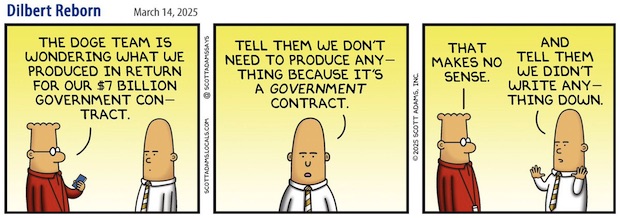

RFK
The U.S. allows 10,000 chemicals in our food, while Europe has 400. How many years has our government failed to protect our food safety? Hold them accountable. Thank God for @RobertKennedyJr advocating for healthy food & fighting for kids. #MAHA pic.twitter.com/g16FH3sgj3
— Lily Tang Williams (@Lily4Liberty) March 13, 2025
Snow deer
Imagine waking up one morning and discovering this magical scene… pic.twitter.com/h4WzKcBb6w
— The Figen (@TheFigen_) March 13, 2025
Multiply
A peculiar multiplication techniquepic.twitter.com/1o2zdoecvp
— Massimo (@Rainmaker1973) March 14, 2025
Sunset
— Wow Animals (@WOW_ANIMALS1) March 13, 2025


Support the Automatic Earth in wartime with Paypal, Bitcoin and Patreon.





